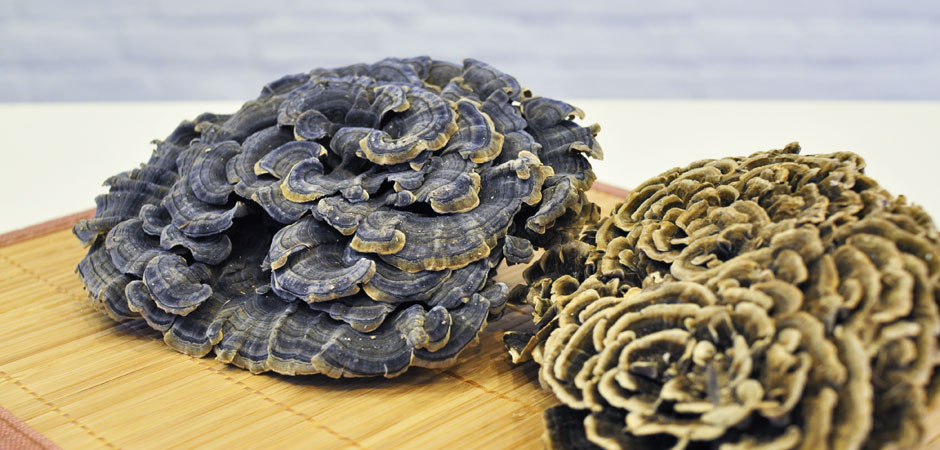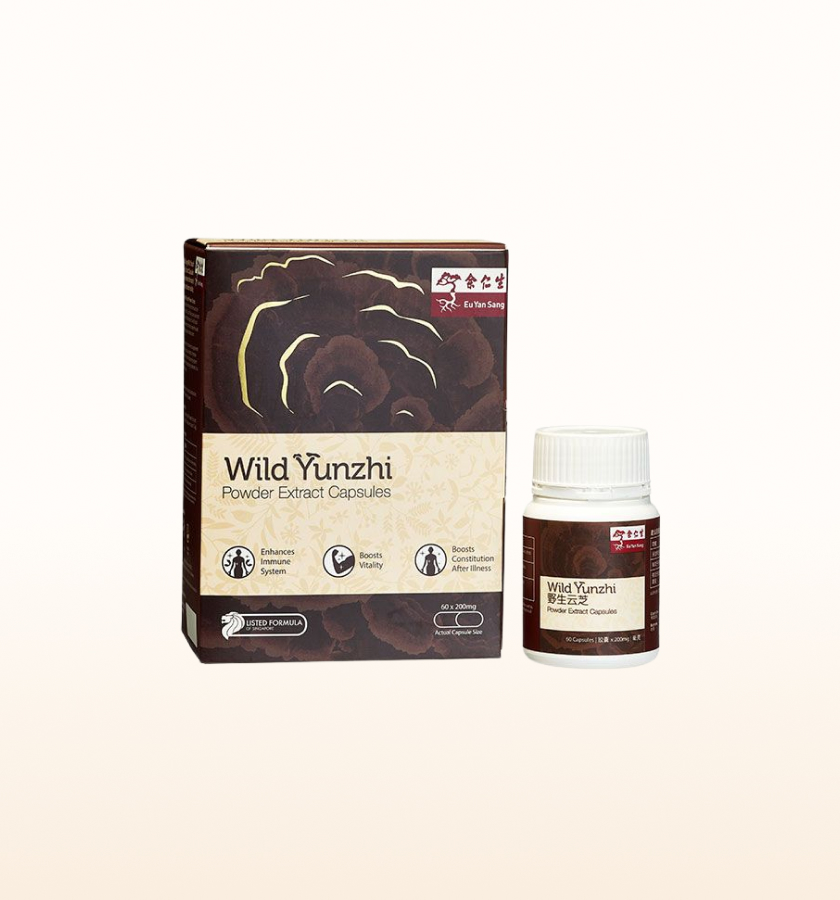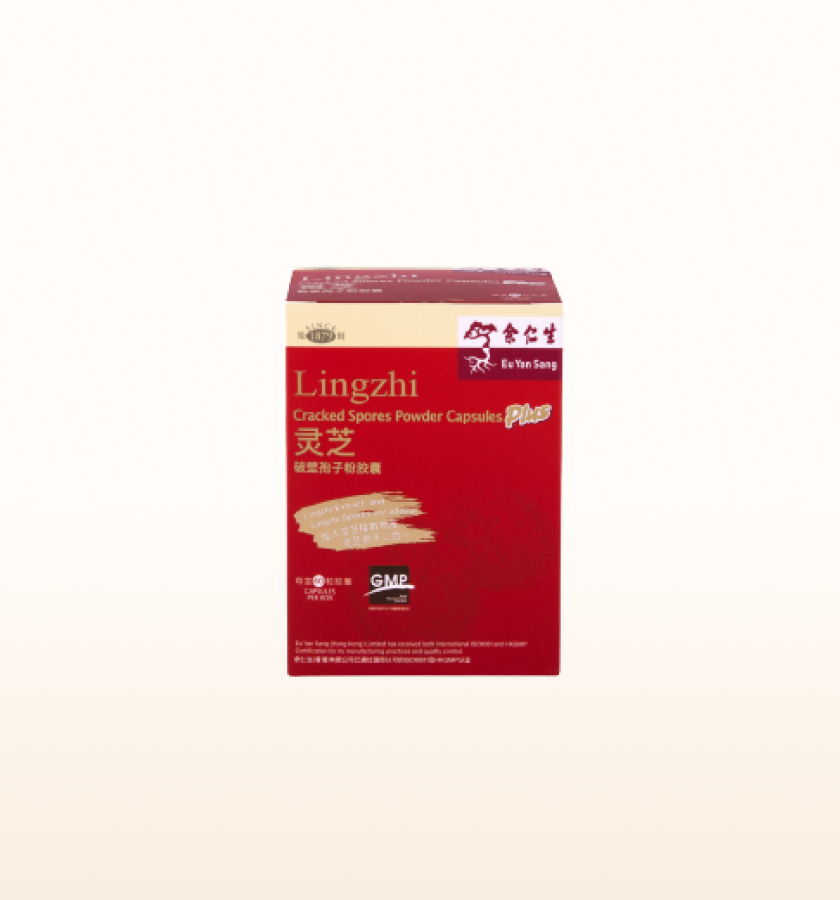THE POWER OF YUNZHI
The Power of Yunzhi
Posted on 7 Nov 2022

In 1991, two German tourists crossing the Alps between Italy and Austria stumbled upon what would turn out to be the world’s oldest human mummy, dating back more than 5,000 years. Among his belongings was a medicine pouch containing Piptoporus betulinus, a mushroom still used today as an antibiotic and anti-parasite.
Mushrooms have a long been a medicinal staple, their healing properties first documented during the Ch’in dynasty, and more recently, in a growing body of peer-reviewed research by the international scientific community.
Among these, two – Lingzhi (Ganoderma lucidum) and Yunzhi (Coriolus Versicolor) – have gained prominence as valuable allies in the fight against cancer. Both have been found to contain biologically active compounds that strengthen the body’s first line of defence, its immune system, while arresting the growth and spread of malignant cells.
Lingzhi
Ancient Egyptians called this mushroom a “gift from Osiris” and the Chinese refer to it as the “mushroom of immortality” or the “elixir of life”. For centuries, this sparsely available mushroom was the food of pharaohs, emperors and the nobility, denied to the masses. Fortunately, this is no longer the case. Growing demand means it is now widely cultivated in North America, China, Taiwan, Japan and Korea.
The mushroom is easily recognised by its red “varnished” appearance. In fact, its scientific name, Ganoderma lucidum literally means ‘Shining skin’.
Lingzhi fights cancer on multiple fronts, first and foremost by putting the body’s immune system on alert. The mushroom is rich in polysaccharides, including beta glucans that activate the body’s natural killer cells (cytokines). These killer cells set up an “immuno-surveillance” system in the body, impeding the growth and spread of cancer cells.
Triterpene compounds, which give Lingzhi its bitter taste, meanwhile, disrupt the ability of the tumour to migrate to other parts of the body and limits its ability to enter the blood or lymphatic systems. Lingzhi is also believed to trigger programmed cell death in cancer cells, and provides strong support to conventional treatments.
A 2003 study by Daniel Sliva (Phd), a researcher at the Cancer Research Laboratory at the Methodist Research Institute in Indianapolis found that Lingzhi “clearly demonstrates anticancer activity in experiments with cancer cells and has possible therapeutic potential as a dietary supplement for an alternative therapy for breast and prostate cancer.” Both breast and prostate cancer cells are highly invasive.
Beyond that, cancer patients who consumed Lingzhi supplements respond more positively to chemotherapy and radiation treatments, according to a review in the May 2012 issue of The Cochrane Library. Physician Tang Yue says her patients who take Lingzhi also cope better with chemotherapy’s side effects.
While Lingzhi is edible, it is unpleasantly bitter in its natural form. More importantly, its nutrients are locked behind a tough, indigestible cell wall4. Reputable TCM suppliers extract nutrients from the fruiting body or better still, the mushroom’s spores, which are even more potent. Spores extracted from wild Lingzhi are more effective than those extracted from cultivated Lingzhi, and this is reflected in the price, notes Eu Yan Sang Physician Tang Yue.
Yunzhi
Alongside Lingzhi, Yunzhi is among the most widely researched – and respected – of the medicinal mushrooms.
Like its cousin, Yunzhi also has a distinctive appearance, and is easily recognisable by its bands of white, gray, brown, black, blue and red concentric circles that fan outwards in frilly layers. The scientific community knows it as Coriolus Versicolor or “multicolour mushroom”, while to the wider community, it is known as the “turkey tail” it resembles.
Unlike Lingzhi, Yunzhi is easily available, and found in abundance in woodlands in Asia and Europe where it grows in clusters on sides of fallen trees.
They key cancer-fighting components of this mushroom are two polysaccharides, Polysaccharide-K (PSK) and Polysaccharide Peptide (PSP).
PSP works mainly as a biological response modifier, stimulating the body’s immune system to target and attack "oncoviruses" (tumour viruses) like the Hepatitis C virus that causes liver cancer, and the Human papillomavirus (HPV) which causes cervical cancer.
PSK extract (“krestin”) also stimulates the immune system, and additionally, may inhibit a number of cancer onset mechanisms. It has been an approved natural medical treatment since the 1980s in Japan, where Yunzhi has long been used alongside conventional therapy.
Yunzhi is also used as complementary treatment in some Singapore clinics, including Parkway Cancer Centre. “There are clinical studies that show that this immunodulates the white cells to assist with the immune system in the patient,” says senior consultant for Medical Oncology, Dr See Hui Ti. Other studies have shown that Ling Zhi can positively impact the health of late-stage cancer patients, she adds.
A 2012 study conducted by researchers from the School of Public Health & Primary Care at The Chinese University of Hong Kong, and Hong Kong’s Prince of Wales Hospital found that using Yunzhi together with conventional anti-cancer treatment results in a significant survival advantage compared with administering conventional treatment alone. The study, which aggregated and analysed the results of 13 clinical trials, found a 9% reduction in 5-year mortality in the group that took Yunzhi, with the effect strongest for patients with breast, gastric, and colorectal cancer.
GET TO KNOW: THE “SONS OF THE GODS”
- The Egyptians associated mushrooms with immortality and called them “sons of the gods”. It was thought that they were sent to earth on lightning bolts by the Storm God Set.
- Unlike the mushrooms we cook daily, medicinal mushrooms are often hard, and wood-like, which is why in TCM they are brewed as teas, boiled in soups, or packaged in powder or capsule form.
- Although their use in fighting cancer has gained a lot of coverage, Lingzhi fights a slew of other ailments – it helps boost the immune system, control blood-glucose levels, metabolize fatty acids and carbohydrates, enhance liver and kidney performance and lower blood pressure, among others.
- The emperors of the great Japanese and Chinese dynasties drank special teas and mushroom concoctions made of Lingzhi to achieve greater vitality and longer life.
- The world’s first true antibiotic, penicillin, is produced from the fungus Penicillium notatum. Immunosuppressant Cyclosporin, used to prevent rejection during organ transplants, comes from two fungi Trichoderms polysporum and Cylindrocarpon lucidum.


.png)




